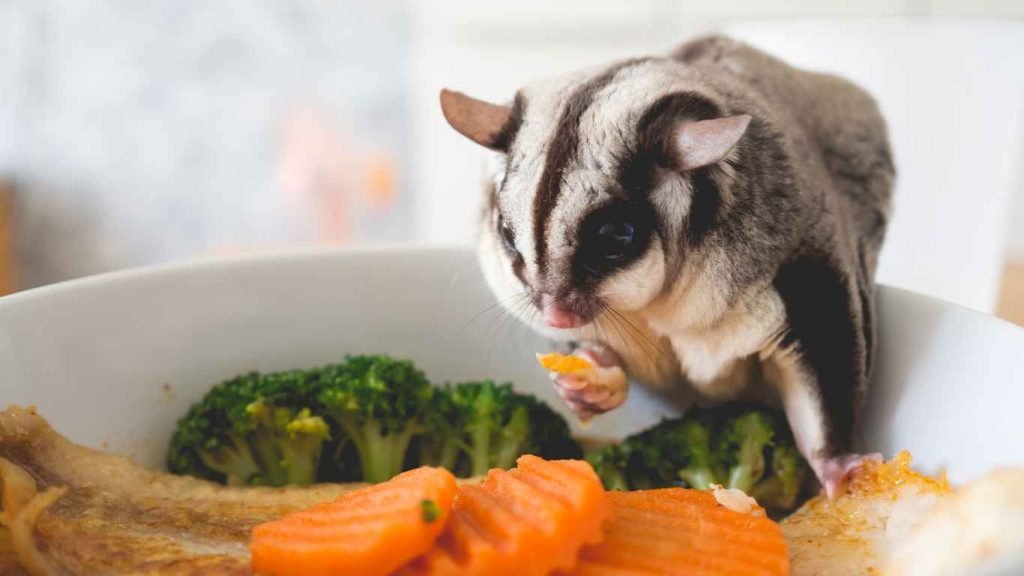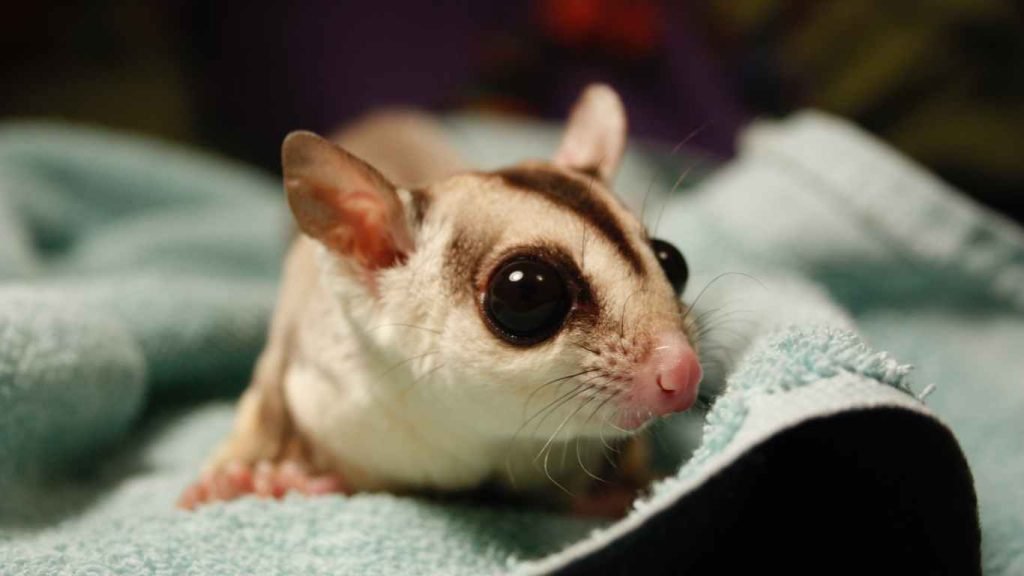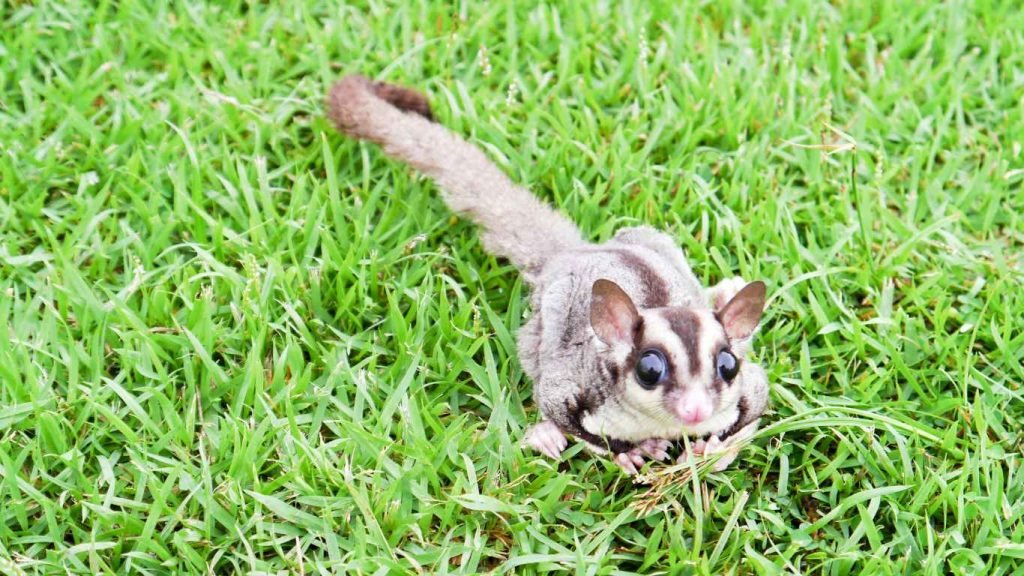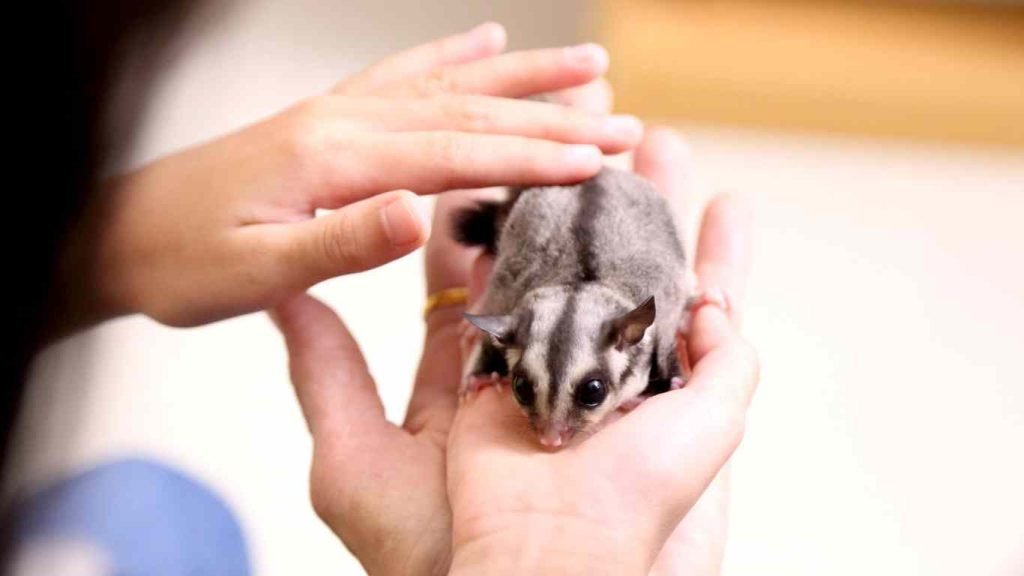Exotic, Pets, Sugar Gliders
Do Sugar Gliders Bite? Understanding Their Behavior
Sugar gliders are fascinating creatures known for their adorable appearance and unique characteristics. If you’re considering adopting a sugar glider as a pet, you may be wondering if they have a tendency to bite. Understanding their behavior is key to creating a safe and harmonious environment for both you and your glider.
Sugar gliders have the potential to bite for various reasons. They may bite out of fear, as a way of testing boundaries, due to unfamiliar smells, or during the bonding process. It is important to understand these behaviors in order to prevent or manage biting incidents.
Do Sugar Gliders Bite? Core Insights:
Reasons Why Sugar Gliders Bite
Sugar gliders may bite for various reasons, and understanding these reasons can help owners address and prevent biting incidents. While sugar gliders are generally social and friendly creatures, they may resort to biting in specific situations.
1. Fear
One of the main reasons sugar gliders bite is fear. They have a natural instinct to protect themselves when they feel threatened or in danger. If a sugar glider is scared or stressed, it may bite as a defensive reaction.
2. Testing Boundaries
Sugar gliders are curious animals and may bite to test boundaries. They use biting as a way to assess their surroundings, establish their dominance, or communicate their discomfort. This behavior is often observed in younger sugar gliders.
3. Detecting Unfamiliar Smells
Sugar gliders have a highly developed sense of smell, and they may become wary or anxious when exposed to unfamiliar scents. If an owner or another person smells different from their usual scent, sugar gliders may interpret this as a potential threat and resort to biting.

4. Tasting
Sugar gliders have a habit of exploring their surroundings with their mouth. They may occasionally bite to taste or chew on objects, including their owners’ fingers. This behavior is generally harmless and not driven by aggression.
5. Affectionate Behaviors
Sugar gliders are sociable animals that engage in grooming and bonding behaviors with their owners or other gliders. While grooming, they may accidentally nibble or give gentle bites, especially when they are trying to show affection. These bites are usually not painful or aggressive.
It is essential to note that sugar gliders rarely bite out of aggression or dislike. Aggressive biting is uncommon and usually only occurs in specific circumstances, such as extreme stress or pain. Understanding the reasons behind sugar glider biting behavior can help owners address and prevent these situations.
| Reasons Why Sugar Gliders Bite | Description |
|---|---|
| Fear | Biting as a defensive reaction when feeling threatened or scared |
| Testing Boundaries | Using biting to establish dominance or assess their surroundings |
| Detecting Unfamiliar Smells | Becoming anxious or wary when exposed to unfamiliar scents |
| Tasting | Biting as a way to explore and chew on objects |
| Affectionate Behaviors | Accidental biting during grooming or bonding activities |
By understanding these reasons, sugar glider owners can take appropriate measures to prevent biting incidents, create a safe environment, and build a strong bond with their furry companions.

Handling Scared Sugar Gliders
When it comes to handling scared sugar gliders, remember to approach them with patience and care. These small marsupials may exhibit defensive postures when frightened, and it’s important not to reinforce their biting behavior. Instead, follow these tips to ensure a safe and positive interaction:
- Keep calm and move slowly: Sudden movements or loud noises can startle sugar gliders further. Approach them calmly and move in a slow and deliberate manner.
- Offer a protected hand: When reaching out to handle a scared glider, hold your hand in front of them in a flat and taut position. This helps protect your fingers while allowing the glider to become familiar with your scent.
- Use a bonding blanket or sleeping pouch: Providing a bonding blanket or an extra sleeping pouch can help create a sense of security for scared sugar gliders. This cozy space allows them to retreat when they feel anxious or overwhelmed.
Building trust with scared sugar gliders takes time and consistency. By respecting their boundaries and providing a safe environment, you can help alleviate their fears and build a stronger bond.
Expert Tip
“Approaching scared sugar gliders with patience and gentle movements is key. Remember, every glider is different, so take the time to understand their individual needs and comfort levels.”

| Do | Avoid |
|---|---|
| Move slowly and calmly | Make sudden movements or loud noises |
| Hold your hand in front of them in a protective way | Pull back when they exhibit defensive postures |
| Offer a bonding blanket or extra sleeping pouch | Force immediate contact or handling |
Remember, understanding and respecting the needs of scared sugar gliders is essential in creating a positive and trusting relationship with these unique pets. By implementing these handling techniques, you can help them feel safer and more secure in your presence.
Dealing with Testing and Affectionate Biting
Sugar gliders are known to occasionally bite as a form of testing or affectionate behavior. It’s important to understand that these bites are not malicious but rather natural behaviors for sugar gliders. During these instances, it is essential to handle the situation with care and redirect their attention in a positive way.
When a sugar glider nips you in a testing or exploratory manner, it’s crucial not to react abruptly. Instead, stay calm and provide treats or distractions to redirect their focus. This will help them understand that biting is not an appropriate way to interact with you.
Another technique to discourage biting is hand-feeding. By offering treats from your hand, you create a positive association and reward them for gentle behavior. This reinforces trust and helps them learn that biting is unnecessary. Additionally, blowing gently on the back of their head can deter nipping as it mimics a response from another glider during grooming.

Wontee Sugar gliders Hammock Warm Bed House
Testimonials from Experienced Sugar Glider Owners:
“When my sugar glider, Luna, started nipping during playtime, I tried distracting her with a small toy and she quickly forgot about biting. It made the bonding process much smoother!” – Emily, Sugar Glider Owner
Tips for Handling Love Bites:
- Stay calm and avoid sudden movements when a sugar glider nips.
- Provide treats or toys as positive distractions to redirect their attention.
- Try hand-feeding them to establish trust and discourage biting.
- Blow gently on the back of their head to mimic grooming behavior.
Remember, patience is key when it comes to handling sugar glider bites. With consistent positive reinforcement and gentle redirection, you can help your glider understand appropriate behavior and build a strong bond based on trust and affection.

The Role of Scent in Biting Behavior
When it comes to sugar gliders, their sense of smell plays a vital role in their behavior, including their tendency to bite. These adorable marsupials rely on their sense of scent to navigate their surroundings and communicate with each other. Understanding how scent affects their behavior can help you build a stronger connection with your furry friend and reduce the risk of biting incidents.
Sugar gliders have a keen sense of smell, and they use it to recognize familiar scents, mark their territories, and identify potential threats. When they encounter an unfamiliar scent, it can trigger a defensive response, leading to biting. Therefore, it’s crucial to be mindful of the scents you introduce when handling your sugar glider.
Avoid wearing strong scented products, such as perfumes or heavily scented lotions, when interacting with your sugar glider. These strong odors can confuse or startle your glider and potentially lead to defensive behaviors, like biting.
Consistency in scent is key when handling sugar gliders. By using the same unscented soap and avoiding any strong-smelling products, you can establish familiarity and comfort for your glider. This consistency helps them become accustomed to your scent and build trust over time.
Remember, sugar gliders rely heavily on smell to navigate their world. By maintaining a consistent scent and avoiding overpowering odors, you can create a calmer environment for your glider, ultimately strengthening your bond.

| Scent Behavior | Description |
|---|---|
| Sniffing | Sugar gliders use their noses to investigate and recognize various scents in their environment. |
| Marking Territory | Gliders will rub their scent glands on objects or even on their owners to establish ownership and mark their territory. |
| Defensive Response | When encountering unfamiliar scents, sugar gliders may exhibit defensive behavior, including biting, to protect themselves. |
| Bonding | Consistent scent exposure helps gliders form stronger bonds and trust with their owners. |
Addressing Aggressive Biting
While sugar gliders are not typically aggressive animals, there are rare instances where they may exhibit aggressive biting behavior. It is important to assess the underlying cause of aggression and seek advice from a professional or experienced glider owner. Aggressive behavior should be addressed with caution and appropriate measures to ensure the safety of both the glider and the owner.
Identifying the triggers and circumstances that lead to aggression is crucial in addressing aggressive sugar glider behavior. Some common causes of aggressive biting include territoriality, fear, hormonal changes, or an unhealthy living environment. By determining the root cause, you can implement strategies to manage and prevent aggressive behavior.
If your sugar glider exhibits aggressive biting, it is recommended to consult a veterinarian or an experienced sugar glider owner. They can provide guidance and suggest appropriate training techniques or environmental modifications to alleviate the aggressive behavior.

When handling aggressive gliders, prioritize safety for both you and your pet. Wear protective gloves or use a bonding pouch to minimize the risk of getting bitten. Avoid sudden movements or loud noises that can startle or provoke the glider. Take a calm and patient approach, giving the glider space and time to feel more comfortable.
Training and socialization play a crucial role in managing aggression. Gradually expose your glider to new experiences, people, and situations to help them become more adaptable and less prone to aggression. Positive reinforcement techniques, such as rewarding calm and non-aggressive behavior, can be effective in retraining and redirecting their actions.
TIP: It is important to remember that addressing aggressive behavior requires patience and consistency. Avoid resorting to punishment or physical force, as this can exacerbate the aggression and damage the trust between you and your glider. Seek professional advice for a tailored approach to your specific situation.
Aggressive Sugar Glider Behavior Triggers
| Trigger | Description |
|---|---|
| Territoriality | Sugar gliders can become aggressive when they feel their territory is being invaded. |
| Fear | Gliders may bite out of fear or as a defensive response to perceived threats. |
| Hormonal Changes | Unbalanced hormone levels, particularly in unneutered or unspayed gliders, can contribute to aggressive behavior. |
| Unhealthy Environment | Poor living conditions, lack of enrichment, or improper diet can negatively impact a glider’s behavior and increase aggression. |
Understanding the triggers and employing appropriate strategies can help address aggressive sugar glider behavior effectively. With patience, training, and a supportive environment, you can help your glider overcome aggression and build a trusting relationship.
Understanding the Sensation of Glider Bites
Sugar glider bites can be a concern for potential owners, leaving them wondering about the pain associated with these small creatures. Fortunately, sugar glider bites are usually not painful, especially from younger gliders. While older gliders may have stronger bites, they typically do not break the skin.

Although glider bites can be surprising and cause momentary discomfort, they rarely result in long-lasting injuries. This is due to the small size and limited strength of their jaws. While the initial sensation may be unpleasant, the pain is generally minimal and short-lived. Owners can take comfort in knowing that the risk of suffering from significant pain from sugar glider bites is relatively low.
If you find yourself on the receiving end of a sugar glider bite, there are a few steps you can take to further minimize any discomfort:
- Remain calm: It is important to stay calm and avoid any sudden movements that may startle or further agitate the glider.
- Clean the area: In the event of a break in the skin, clean the bite with mild soap and warm water to reduce the risk of infection.
- Apply a cold compress: If the bite results in swelling or minor pain, you can apply a cold compress to help alleviate discomfort.
- Seek medical attention if necessary: If the bite causes excessive bleeding, severe pain, or shows signs of infection, consult a healthcare professional for appropriate treatment.
Remember, sugar glider bites are often a result of fear, stress, or unfamiliar situations. By gradually acclimating your glider to their surroundings and earning their trust through proper handling and care, you can reduce the likelihood of biting incidents. Understanding the limited pain associated with sugar glider bites can help new owners approach these situations with confidence and peace of mind.
Knowledge of the minimal pain caused by sugar glider bites should not discourage you from enjoying the unique companionship and joy that these enchanting creatures can bring to your life.

Join Our GeoZoo Family
Subscribe to our Newsletter
Final Remarks
Managing sugar glider behavior and preventing bites require understanding their natural tendencies and providing the right care. By creating a calm and safe environment, you can help your sugar glider feel secure and reduce the likelihood of biting incidents.
Proper handling techniques are crucial in building trust with your glider. Remember to approach scared gliders with patience, avoiding sudden movements that may startle them. Use a flat and taut hand position, and consider using a bonding blanket or extra sleeping pouch to ease their fear and promote bonding.
Addressing testing and affectionate biting requires redirection and positive reinforcement. Provide treats and distractions to redirect their attention, and avoid reacting negatively to bites. Understand that these behaviors are natural for sugar gliders and not indications of aggression.
Furthermore, be mindful of scents when interacting with your sugar glider. Avoid wearing strong-scented products that may confuse or startle them. Consistency in scent can help establish familiarity and strengthen your bond.
By following these guidelines and giving your sugar glider the care and attention they need, you can minimize the risk of bites and foster a harmonious relationship. Remember, with patience, understanding, and appropriate handling techniques, you can enjoy the companionship of your sugar glider for years to come.
FAQ
Do sugar gliders bite?
Yes, sugar gliders have the potential to bite for various reasons. They may bite out of fear, as a way of testing boundaries, due to unfamiliar smells, or during the bonding process.
Why do sugar gliders bite?
Sugar gliders may bite when they are scared, testing boundaries, detecting unfamiliar smells, tasting, or engaging in affectionate behaviors like grooming. It is rare for sugar gliders to bite out of aggression or dislike.
How to handle scared sugar gliders?
When handling scared sugar gliders, it is important to approach them with patience and care. Avoid pulling back when they exhibit defensive postures, as this can reinforce their biting behavior. Instead, hold your hand in front of the glider in a flat and taut position to protect yourself. Using a bonding blanket or extra sleeping pouch can also help ease their fear and build trust.
How to deal with testing and affectionate biting?
Sugar gliders may bite as a form of testing or affectionate behavior. Providing treats or distractions can help redirect their attention and prevent biting. Hand-feeding them or blowing gently on the back of their head can also discourage biting. It is important to understand that these types of biting are not malicious but natural behaviors for sugar gliders.
What is the role of scent in biting behavior?
Sugar gliders may bite when they do not recognize a person’s scent. Avoid wearing strong scented products when handling them, as it can confuse or startle them. Consistency in scent can help build trust and improve the relationship between gliders and their owners.
How to address aggressive biting?
While sugar gliders are not typically aggressive animals, there are rare instances where they may exhibit aggressive biting behavior. It is important to assess the underlying cause of aggression and seek advice from a professional or experienced glider owner. Aggressive behavior should be addressed with caution and appropriate measures to ensure the safety of both the glider and the owner.
Do sugar glider bites hurt?
Sugar glider bites are usually not painful, especially from younger gliders. Older gliders may have stronger bites, but they still do not typically break the skin. Glider bites can be surprising and may cause momentary discomfort, but they rarely result in long-lasting injuries.
Conclusion
Understanding the reasons behind sugar glider biting behavior is essential for managing and preventing biting incidents. By providing a calm and safe environment, handling them correctly, and addressing their needs, owners can build trust and form a harmonious bond with their sugar gliders. With patience and proper care, sugar glider bites can be minimized or prevented altogether.


